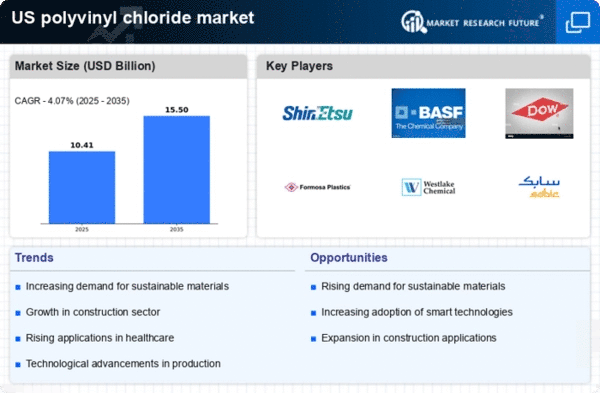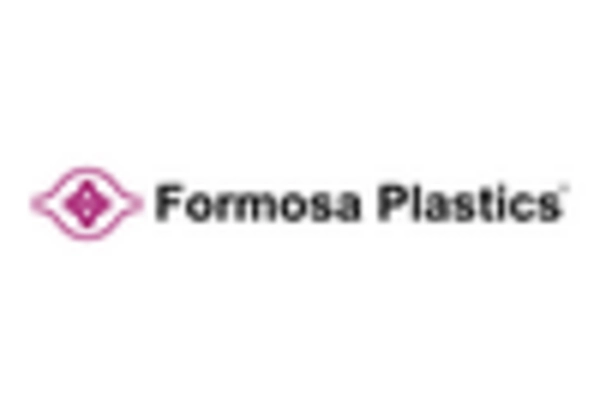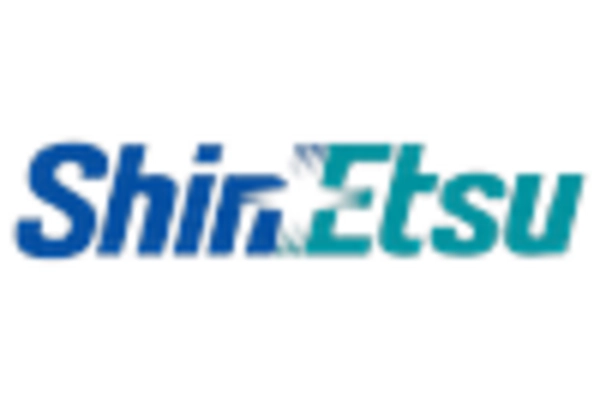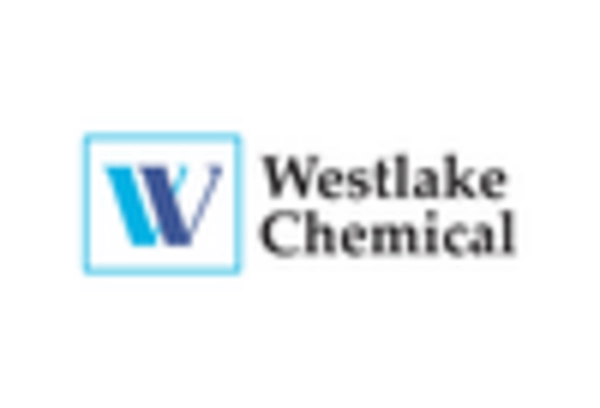The polyvinyl chloride market exhibits a dynamic competitive landscape characterized by a blend of innovation, strategic partnerships, and regional expansion. Key players such as Dow Inc (US), BASF SE (DE), and Westlake Chemical Corp (US) are actively shaping the market through their distinct operational focuses. Dow Inc (US) emphasizes sustainability and digital transformation, aiming to enhance its product offerings while reducing environmental impact. BASF SE (DE) is pursuing strategic mergers and acquisitions to bolster its market position, while Westlake Chemical Corp (US) is concentrating on optimizing its supply chain to improve efficiency and reduce costs. Collectively, these strategies contribute to a moderately fragmented market structure, where competition is driven by both technological advancements and operational efficiencies.In terms of business tactics, companies are increasingly localizing manufacturing to better serve regional markets and optimize supply chains. This approach not only reduces transportation costs but also enhances responsiveness to local demand fluctuations. The competitive structure remains moderately fragmented, with several key players exerting influence over market dynamics. The collective actions of these companies indicate a trend towards consolidation, as firms seek to leverage synergies and enhance their competitive edge.
In October Dow Inc (US) announced a significant investment in a new production facility aimed at increasing its capacity for sustainable PVC products. This strategic move underscores Dow's commitment to sustainability and positions the company to meet the growing demand for eco-friendly materials. The facility is expected to enhance operational efficiency and reduce carbon emissions, aligning with global sustainability goals.
In September BASF SE (DE) completed the acquisition of a regional PVC manufacturer, which is anticipated to expand its market share and enhance its product portfolio. This acquisition not only strengthens BASF's competitive position but also allows for greater integration of innovative technologies into its operations, potentially leading to improved product offerings and customer satisfaction.
In August Westlake Chemical Corp (US) launched a new line of PVC products designed for the construction industry, focusing on energy efficiency and durability. This product launch reflects Westlake's strategy to cater to evolving market needs and reinforces its commitment to innovation. By addressing specific industry demands, Westlake is likely to enhance its market presence and attract new customers.
As of November the competitive trends in the polyvinyl chloride market are increasingly defined by digitalization, sustainability, and the integration of advanced technologies such as AI. Strategic alliances are becoming more prevalent, as companies recognize the value of collaboration in driving innovation and enhancing supply chain reliability. Looking ahead, competitive differentiation is expected to shift from traditional price-based competition to a focus on innovation, technological advancements, and sustainable practices. This evolution will likely reshape the market landscape, compelling companies to adapt and innovate continuously.

















